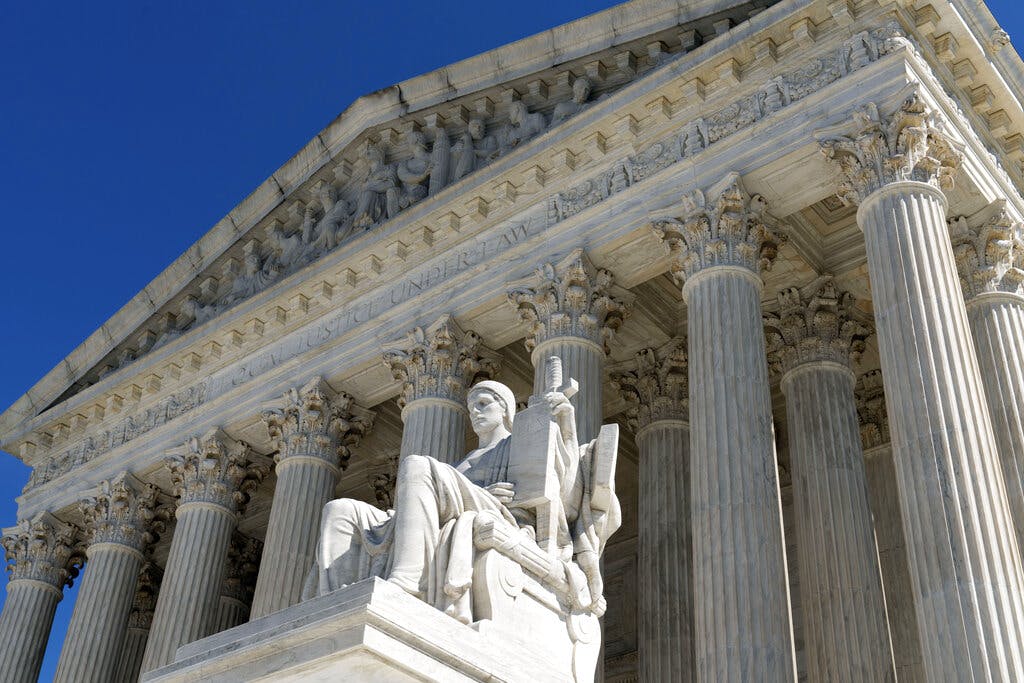Supreme Court Dodges Decision on Fetal Personhood
The Nine will not rule on whether fetuses are entitled to constitutional rights, ensuring that for now Dobbs is the last constitutional word on abortion.

The Supreme Court’s decision not to rule whether fetuses are entitled to constitutional rights ensures that for the time being Dobbs v. Jackson Women’s Health is the last constitutional word on abortion. The abstention suggests that the justices have little appetite for reengaging the hot-button issue so soon after Dobbs.
The justices rejected an appeal from a Catholic anti-abortion group, Servants of Christ for Life, as well as two women who brought suit on behalf of their then-unborn children. Their argument that fetuses were owed the protections of the 14th Amendment failed to move the Rhode Island Supreme Court.
That body found that fetuses “are not entitled to the protections and guarantees of the due process and equal protection clauses of the United States Constitution.” In so doing, they ruled that the unborn do not constitute “persons” for the sake of the national parchment. For its logic, that ruling relied on Roe v. Wade.
At issue is Rhode Island’s Reproductive Privacy Act, which codified the right to an abortion that was once enshrined in Roe. Servants of Christ for Life argued that its terms serve to deprive fetuses of what they are owed under the 14th Amendment: the “right to life” and the “due process of law.”
The Ocean State jurists also held that those in utero did not have standing to sue because they had not suffered an injury; both fetal plaintiffs are now healthy babies. Generally, to bring a suit, a party is required to have experienced harm, or for that harm to be imminent. Conceptual offense does not open the courthouse door.
Even as Dobbs tossed the question of abortion back to the states, it is mum on whether the Constitution applies to the unborn, refraining from deciding “when prenatal life is entitled to any rights enjoyed after birth.”
While the high court will not opine on fetal personhood this term, the issue is an emergent one nationally. In Georgia, a law that took effect as soon as Roe fell mandates that at six weeks old a fetus qualifies for tax credits and child support. It is also to be considered in population counts and redistricting calculations.
In July, a woman in Texas, Brandy Bottone, argued that under the state’s anti-abortion law, her unborn fetus should be counted for the purpose of determining her eligibility for the High Occupancy Vehicle Lane. She told the Dallas Morning News that she felt that “there were two of us in [the car]” and that she was “wrongly getting ticketed.”
By rejecting the petition in an unsigned note, the court left for another day the invitation to, in the words of the bid for certiorari, “finally determine whether prenatal life, at any gestational age, enjoys constitutional protection.”

